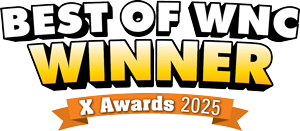Robert began his wine career in Asheville working at GreenLife. “I found myself gravitating toward the wine section,” he said. “Soon, my professional evolution was completed and I was all in for a career in wine!”
To further his knowledge, Robert worked seven years with a local wine distributor. He then took his expertise to Bouchon where he selected wines for the menu. “Six years later, I began to seriously consider starting an import business.”
Robert saw a hole in the market. “There were very few German red wines,” Robert observed. “All you saw on shelves from Germany was Riesling. I thought German Reds could be my niche!”
But Robert soon found that bringing a wine to market is not for the faint of heart! In North Carolina, retailers and restaurants must buy wines from a North Carolina Distributor. When a wine is imported, it is either turned over to a Distributor to sell or the importer wears two hats and also handles distribution.
“Both require financing,” Robert said. “That’s when reality set in.” “Passion can sometimes get in the way of the best business choice.”
So despite his enthusiasm for German Red wines, Robert knew a small market like Asheville could not support a little known new entry. “A small importer could not buy enough wine to meet the distributor’s demands and, worse,” Robert realized, “the small family farmer could not produce enough wine!”
While he still imports German Reds, Robert decided to also import wines from other countries. “I find wines by attending trade shows, visiting wineries, recommendations from industry people, and from wineries seeking an importer.”
After a wine is selected to import, Robert must submit the label for federal government approval. Once approved, Robert says smaller loads are shipped from LeHarve, France, to New York then trucked to Asheville. “An entire palette of wines would ship from Marseilles directly, usually to Charleston.”
But what makes all this work worth it? Robert talks of a recent trip to France. “I don’t speak French,” he says, “I am usually accompanied by an associate to translate.” But on a recent trip to the Loire Valley, Robert was on his own.
Robert was invited to lunch at Chateau de L’Aiguillette, a small family winery that produces “muscadet,” which is to oysters what Chianti is to red sauce. “There was a table with eight family members, none of whom spoke English.” Robert said. “We both spoke as much of the other language as we could and filled in with drawings on post it notes to communicate!”
“These are wines that you will only be able to taste because a small family produced it with care, a small importer committed to bring the wines to this country,” Robert summarizes, “and a small independent retailer invested in making the wines available to the community.


